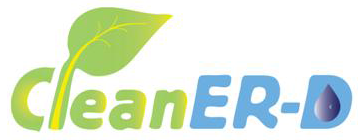
CleanER-D
Clean European Rail-Diesel

|
Title of Programme
|
FP7-SST-2008-RTD-1 |
|
Financing Code for Project
|
SCP8-GA-2009-234338-CLEANER-D |
| Project start year - end year | 2010 - 2013 |
| Financing organisation |
EUROPEAN COMMISSION
DIRECTORATE-GENERAL FOR RESEARCH & INNOVATION-FP7- Collaborative project
|
| Coordinator | Association of the European Railway Industry (UNIFE) |
| Other partners |
International Union of Railways (UIC)
The Association of Train Operating Companies (ATOC)
Vossloh Espana S.A., Sociedad Unipersonal (Vossloh)
Societe Nationale des Chemins de Fer Francais (SNCF)
Deutsche Bahn AG (DB)
MTU Friedrichhafen GmbH (MTU)
Aerosol and Particle Technology Laboratory (APTL)
Voith Turbo GmbH & Co KG (VTA)
University of Newcastle (UNEW)
Universidad Politecnica de Valencia (UPVLC)
Consiglio Nazionale delle Ricerche (CNR-IM)
Chalmers Tekniska Hoegskola AB (CHA)
The Engine Consultancy Limited (TEC)
Institut fur Zukunftsstudien undTechnologiebewertung GmbH (IZT)
Universitat Rostock (UROS)
TEDOM s.r.o. divize Motory (TEDOM)
|
| Budget / APTL Budget | 13,343,593 € / 303,368 € |
| Scientific Manager / Project researcher | |
| Project website | |
| Summary |
Clean European Rail-Diesel (CleanER-D) is a partly European Commission funded project that aims to develop, improve and integrate emissions reduction technologies for diesel locomotives and rail vehicles. Its target is to achieve emission levels below the limits established by the new European Directive 2004/26/ EC and to evaluate innovative and hybrid solutions for the best possible contribution to reductions in CO2 emissions. Furthermore, CleanER-D offers competitive rail vehicles to the market in order to avoid a modal shift from rail to road to enable the industry, and evaluates different solutions to fulfill stage IIIB emission limits on rail vehicles.
This four years project has been built on the basis of several application sub-projects, representative of the different engine applications (rail cars, Diesel Multiple Units, shunting locomotives, main line light and heavy-haul locomotives) that will enable the industry to evaluate the different solutions to be applied to rail systems in real operating conditions. The optimum tradeoff between the reduction of pollutant emissions by rail vehicles and the fuel energy consumption and CO2 emissions, as well as the overall impact of the applied technologies on the environment through a life cycle assessment approach, will be identified by this experimental part of the project. But the rail manufacturing industry also wishes to foster the development of rail specific applications of innovative solutions so as to even further develop the competitive advantages of rail transport in terms of sustainable development.
|

